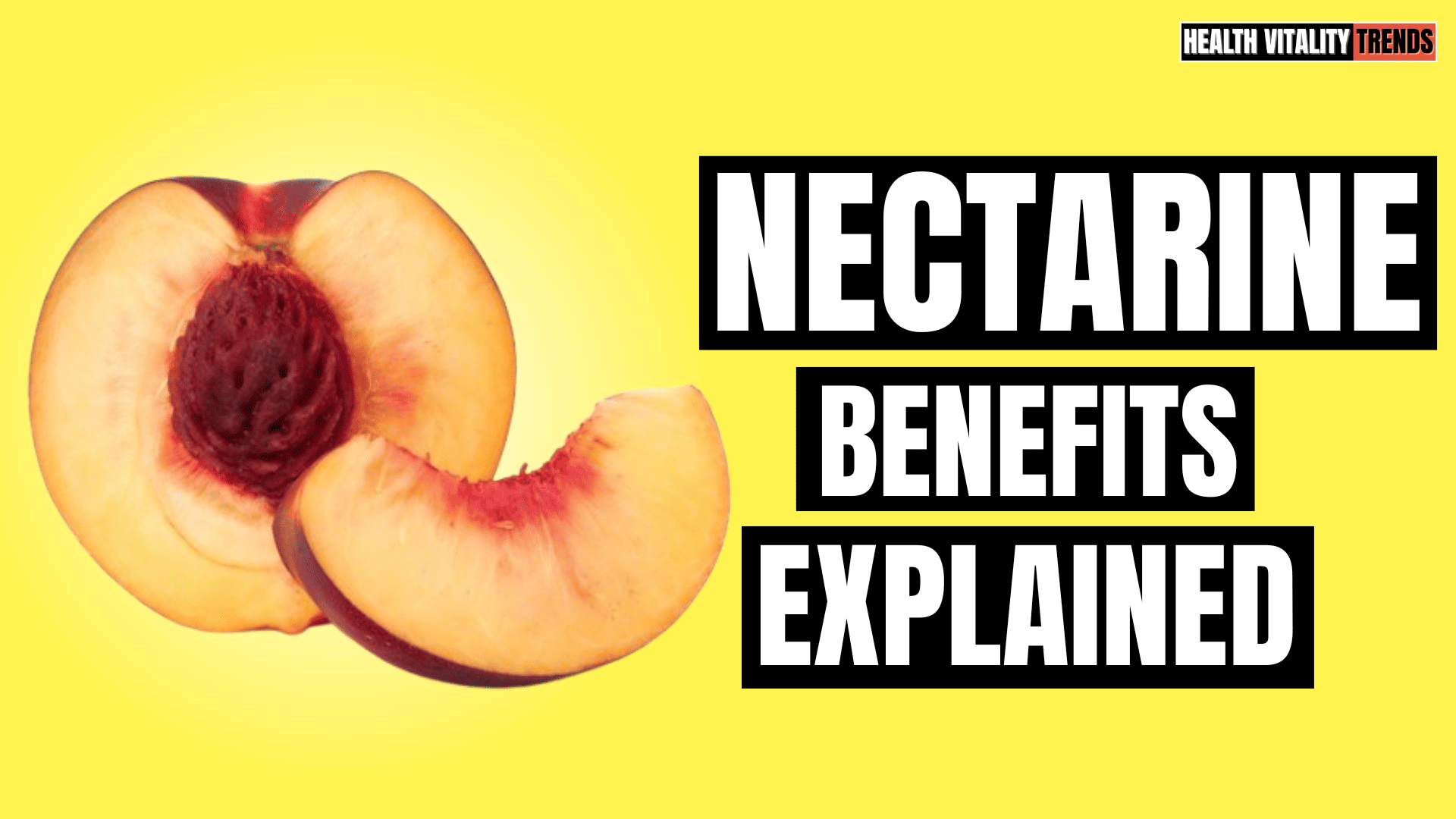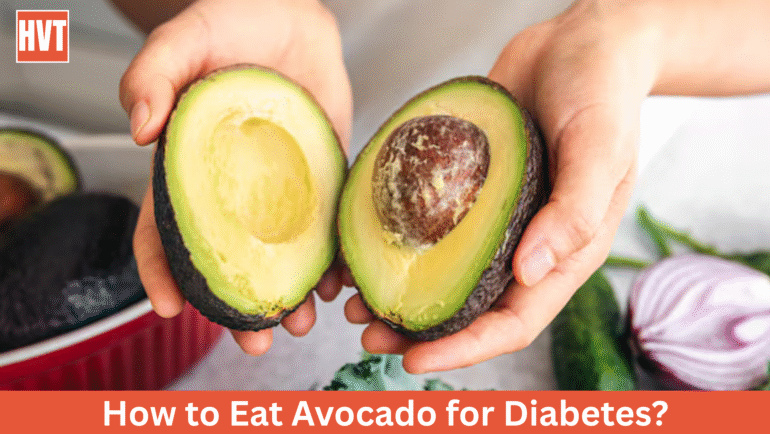
NECTARINE: Juicy Taste Without the Sugar Crash & Inflammation Perks
Smooth-skinned, juicy, and refreshingly sweet—Nectarines are the summer fruit you don’t want to miss. Packed with vitamins, fiber, and antioxidants, they support everything from your heart to your skin.
Whether you bite into one fresh or toss it into a salad, this peach-like fruit delivers both flavor and health. Let’s dive into why nectarines deserve a regular spot in your diet.
What is a Nectarine?
Nectarines (Prunus persica var. nucipersica)[1] are a smooth-skinned variety of peach, belonging to the same species but distinguished by a natural genetic variation that gives them their signature glossy skin.
Thought to have originated in China over 2,000 years ago, nectarines spread to Persia, Greece, and eventually Europe through trade routes. Today, California is one of the largest producers globally.
Fun fact: In ancient China, nectarines symbolized immortality and vitality. They were often painted in royal artwork as a symbol of eternal youth.
Nectarines are in season during late spring through early fall, making them a refreshing staple for warm-weather meals.

What Do Nectarines Taste Like?
A Nectarine tastes like a perfect balance between a peach and a plum. The flesh is juicy and sweet with a slight tang, while the skin is smooth and slightly firmer than that of a peach.
When ripe, nectarines practically drip with juice, offering a satisfying bite that’s both refreshing and flavorful.
Nectarine Nutrition Facts
Here’s the nutrition profile for 100g (about 1 medium nectarine) from USDA data[2]:
| Nutrient | Amount | % Daily Value* |
|---|---|---|
| Calories | 44 kcal | — |
| Carbohydrates | 11 g | — |
| Fiber | 1.7 g | 6% |
| Protein | 1.1 g | — |
| Vitamin C | 5.4 mg | 6% |
| Vitamin A (Beta-carotene) | 332 IU | 7% |
| Potassium | 201 mg | 6% |
Key nutrients to note:
- Vitamin C: Strengthens immunity and promotes collagen production for healthy skin.
- Potassium: Supports heart health and helps balance blood pressure.
- Beta-carotene (Vitamin A): Protects eye health and promotes healthy skin.
Health Benefits of Nectarines
1. Supports Heart Health: Potassium and antioxidants in nectarines help lower blood pressure and reduce LDL oxidation, supporting long-term cardiovascular health.
2. Aids Digestion: The fiber content promotes smooth digestion and helps prevent constipation, while feeding beneficial gut bacteria.
3. Boosts Immunity: With vitamin C and polyphenols, nectarines help your body fight infections and speed up recovery from colds.[3]
4. Promotes Healthy Skin: Antioxidants like vitamin C and beta-carotene protect against UV damage and support collagen formation, giving skin a natural glow.[3]
5. May Support Weight Management: Low in calories but high in water and fiber, nectarines help you feel full without adding excess calories.[3]
6. Protects Eye Health: Beta-carotene and lutein contribute to reduced risk of macular degeneration over time. (Source: NIH).
How to Eat Nectarine
Nectarines are versatile and easy to enjoy:
- Fresh Snack: Bite into one just as you would an apple—no peeling required.
- Grilled Nectarines: Slice in half, grill lightly, and serve with yogurt and honey for a summer dessert.
- Salad Upgrade: Add slices to a spinach and feta salad for a sweet-salty contrast.

Best Way to Store Nectarines to Keep Them Fresh
- Counter: Keep firm nectarines at room temperature until ripe.
- Fridge: Once ripe, refrigerate in a breathable bag for up to 5 days.
- Freezing Tip: Slice, remove the pit, and freeze on a tray before transferring to a container for smoothies.
- Chef’s Trick: To speed ripening, place nectarines in a paper bag with a banana or apple.
Possible Side Effects or Precautions
Side Effects
- Digestive Issues: Overeating can lead to bloating due to fiber and fructose.
- Allergic Reactions: Rarely, people with birch pollen allergies may react to nectarines.
- High Sugar in Excess: Consumed in very large amounts, nectarines may cause a spike in blood sugar.
Precautions
- Diabetics: Should monitor portion size, especially with very ripe nectarines.
- Kidney Conditions: Those with kidney disease should limit potassium-rich fruits like nectarines.
- Pesticide Residues: Wash well or choose organic, as fruit skin may contain tiny pesticide residues, which are harmful to the human body. So, always wash your fruit well before eating.
Fruits Similar to Apricot
- Peach: Nearly identical in taste, but with fuzzy skin.
- Plum: More tart and juicier.
- Apricot: Smaller, less juicy, with a more delicate sweetness.
- Mango: Richer, tropical sweetness with a different texture.
Common FAQs About Nectarine
1. Is a nectarine good for weight loss?
Yes, nectarines are low in calories and high in fiber, making them a filling yet light snack.
2. Are nectarines good for diabetics?
Yes, in moderation. Their natural sugars are balanced by fiber, but portion control is key.
3. What is the best way to pick a ripe nectarine?
Choose nectarines that are fragrant, slightly soft to touch, and rich in golden-red color. Avoid green or rock-hard ones.
4. Can you eat the skin of a nectarine?
Absolutely. The smooth skin is edible, rich in fiber, and adds extra nutrition.
Conclusion
Nectarines are more than just a juicy summer fruit—they’re a nutritious addition to a balanced diet. With their mix of vitamins, antioxidants, and refreshing sweetness, they support your heart, skin, digestion, and overall well-being. Next time you see nectarines at the market, bring some home and enjoy a bite of health wrapped in nature’s sweetness.








